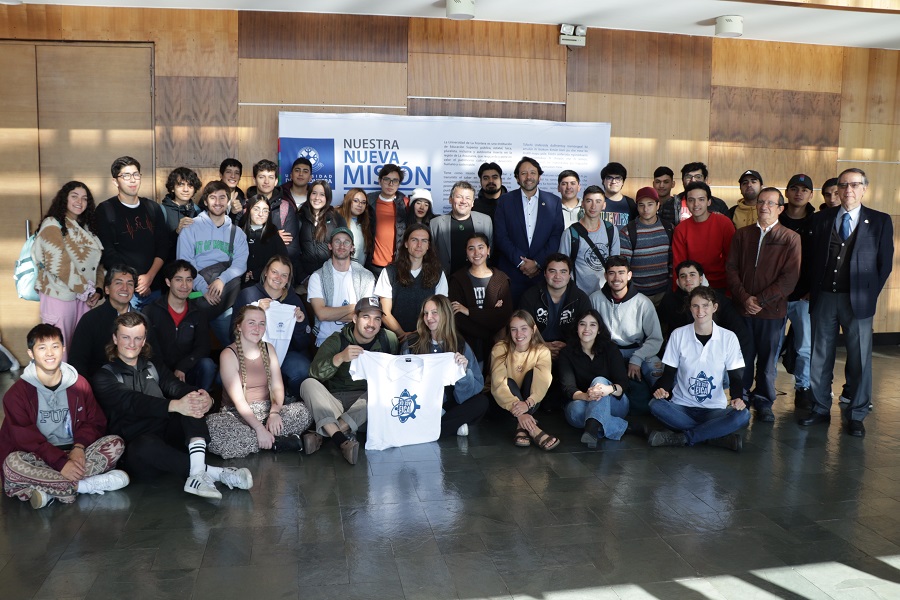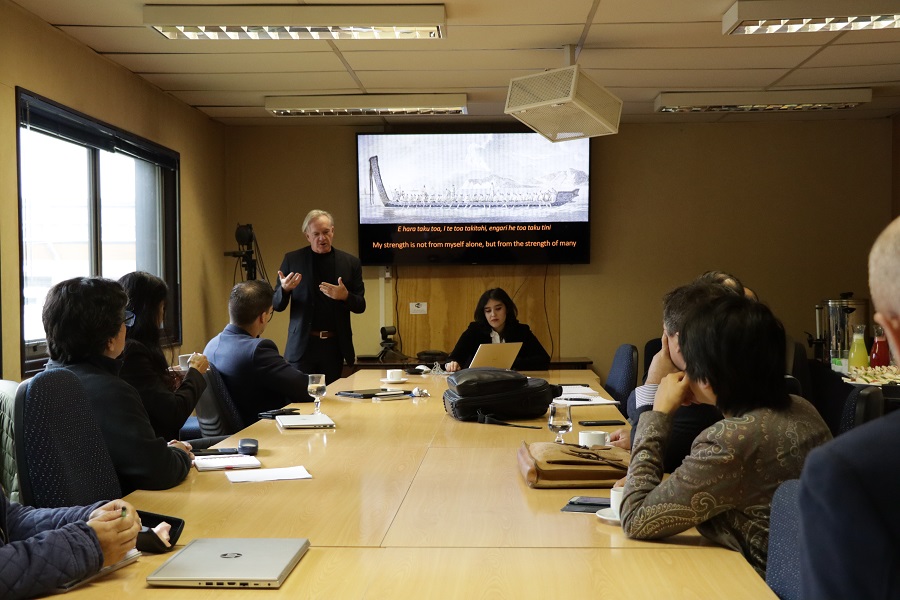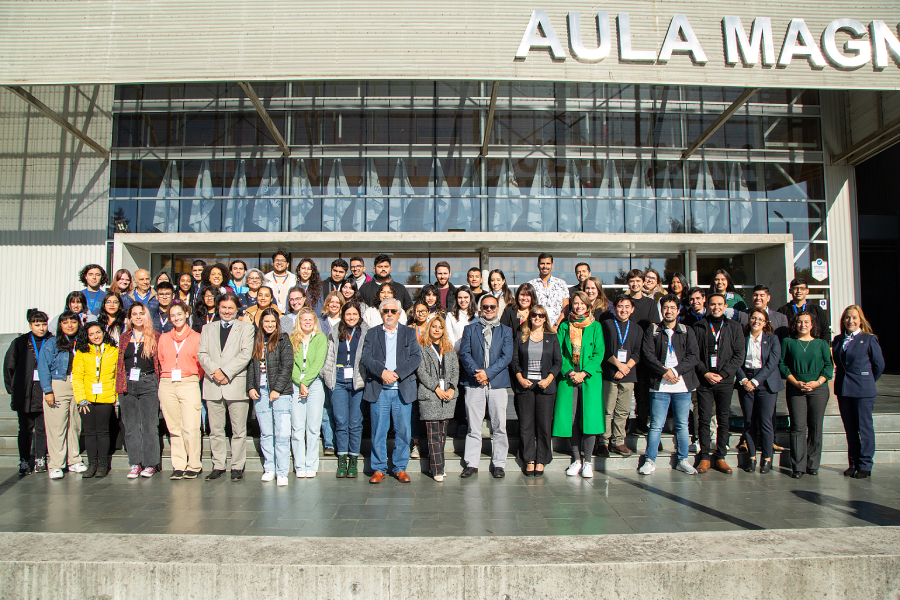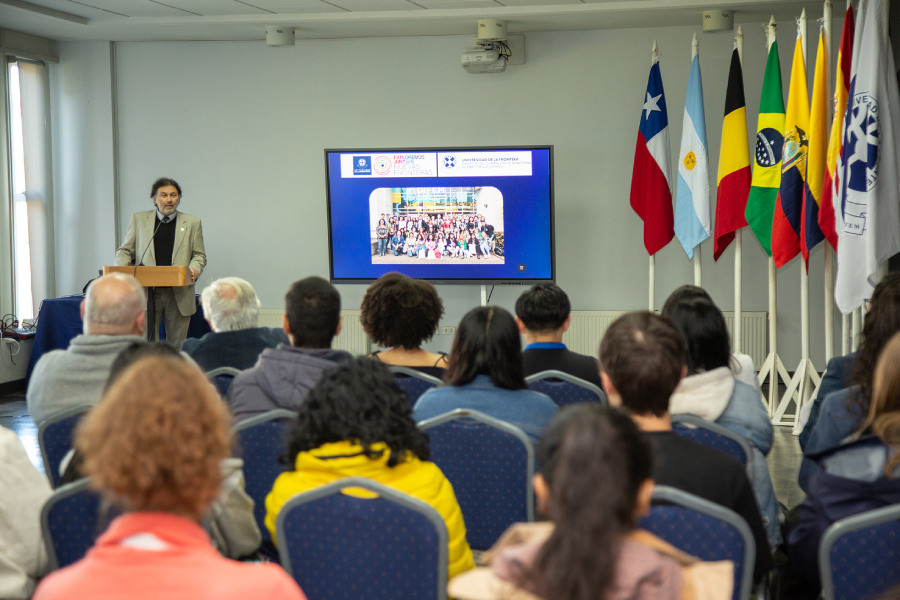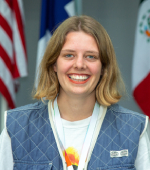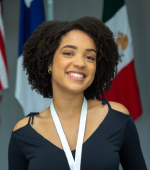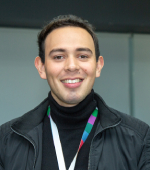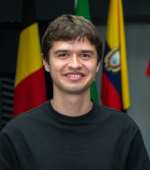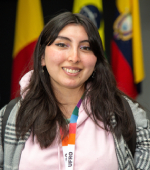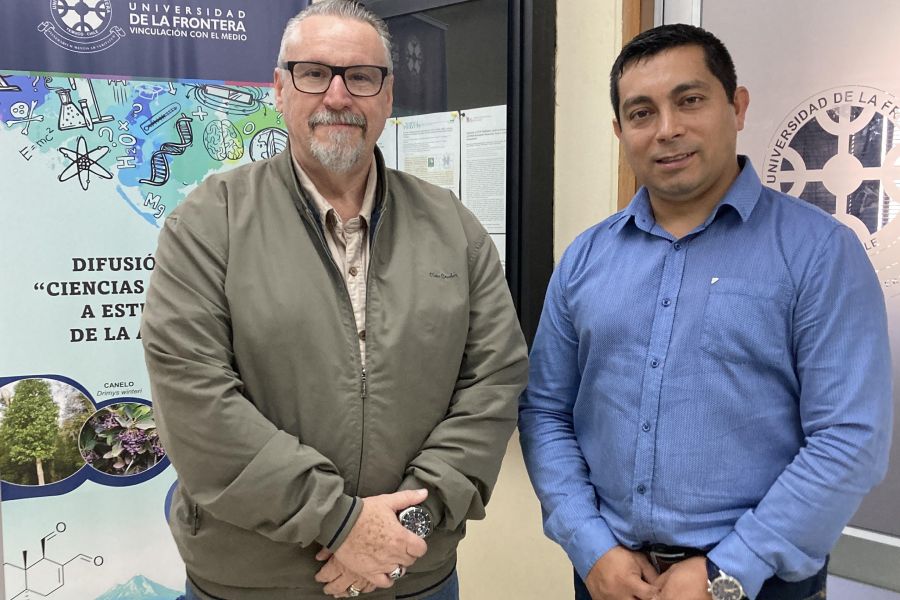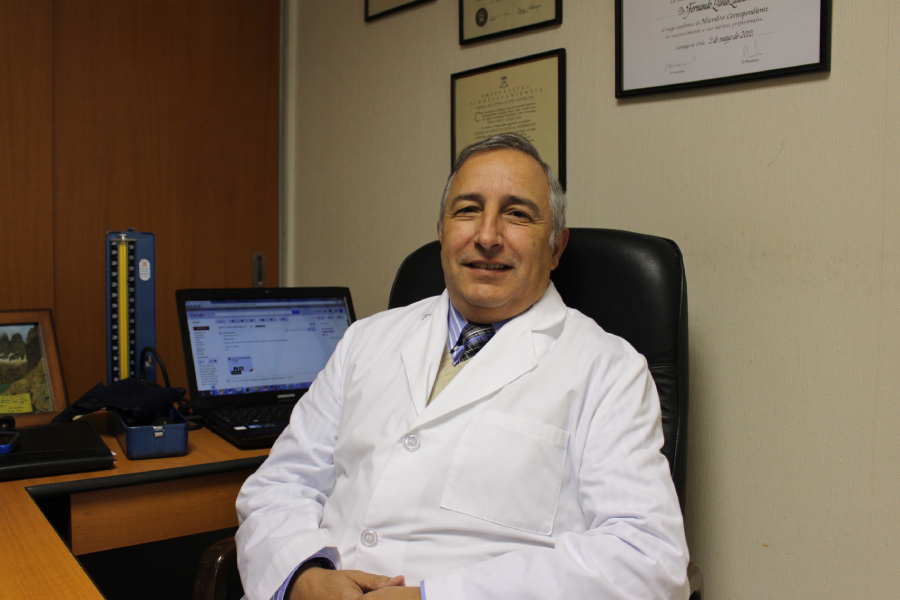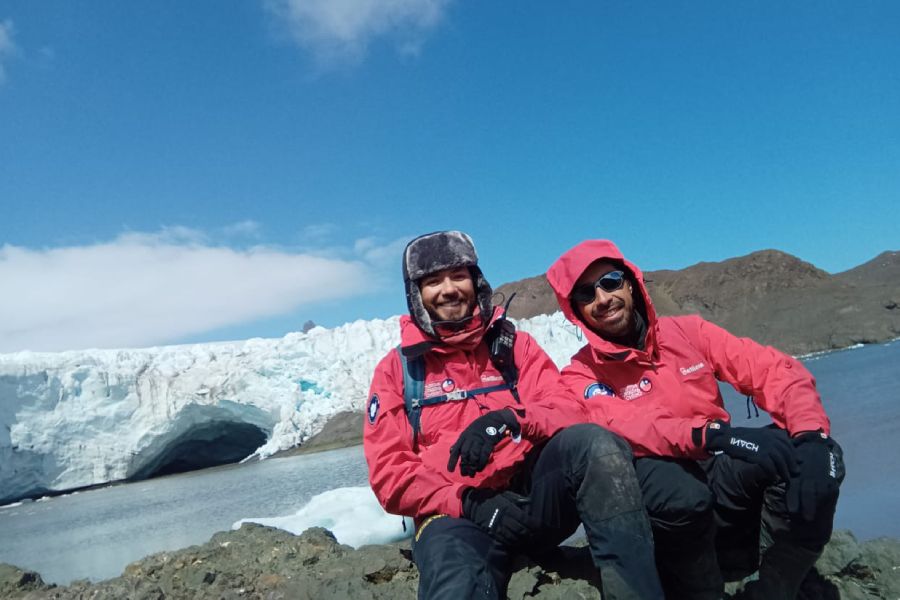|
A delegation of ten architecture students and four academics from Auckland University of Technology in New Zealand visited Universidad de La Frontera within the framework of a cooperation agreement with the Faculty of Engineering and Science. |
During their stay in Chile, the delegation of academics and students of the Bachelor of Architecture and Future Environments of Auckland University of Technology (AUT) in New Zealand visited the Andrés Bello Campus and Pucon Campus of Universidad de La Frontera (UFRO) and got to know some of the beautiful landscapes of the La Araucanía region. The delegation, consisting of Dr. Yvonne Chan, the Director of Engagement of the Faculty of Design and Creative Technologies; Dr. Charles Walker, the Head of the School of Future Environments; Dr. Ricardo Chacón Mestre, the International Partnerships Manager of the Faculty of Design and Creative Technologies; Tessa Forde, a teaching assistant and PhD student; and ten students of the Bachelor of Architecture and Future Environments, visited the La Araucanía region’s lake area and the city of Temuco, getting an idea of the intercultural aspects that have defined the local and part of the national architecture. Some of the points addressed in the meetings with university authorities of UFRO, such as the Vice-rector for Research and Graduate Studies, Dr. Rodrigo Navia Diez, and the Dean of the Faculty of Engineering and Science, Dr. Jorge Farías Avendaño, were the collaboration in research, academic and student mobility in the areas of undergraduate and graduate studies, and the project proposal for a new Architecture study programme at UFRO. At the same time, the students had the chance to interact with their peers of the Construction Engineering and Civil Engineering programmes at UFRO. These encounters made their five-day visit to the La Araucanía Region even more enriching. In this context, it is worth mentioning that this academic trip, financed by the Prime Minister’s Scholarships for Latin America (PMSLA), took place within the framework of the AUT “Study Tour” course, which allows the students from New Zealand to visit different cities in Latin America. In the case of this group, they selected Valparaiso in the centre of Chile, visiting the university Pontificia Universidad Católica de Valparaíso, and Temuco in the south of Chile, visiting Universidad de La Frontera through its Faculty of Engineering and Science. At the end of their visit, the students of AUT presented the conclusions of their stay in Chile and the projects they are currently working on in the fields of social housing, urban landscaping, incorporation of indigenous values and identity associated with public spaces, among others. IMPRESSIONS “We are very happy about this visit, which is part of a work plan that we are implementing in a very proactive and reliable way, to advance, among others, in the development of an architecture undergraduate programme at our faculty, and in matters of student mobility and issues related to interculturality. Visits like these allow us to complement our views and are a direct benefit for the students of both universities,” explained the Dean Dr. Jorge Farías. The delegation from AUT also had a very positive impression of the work developed at UFRO during their stay. “New Zealand and the La Araucanía region have a lot of things in common, but there are also a lot of differences, what motivates us even more to work together, since it will benefit both universities. Interculturality, for example, is one of the topics that truly connects both of our countries,” pointed out Dr. Ricardo Chacón. “We are making progress regarding the partnerships with these two universities and we are excited to see that there are so many opportunities for creativity in Chile, with the additional element of indigenous values. In our architecture study programme, the Maori culture and others are very present and UFRO, in its project proposal for an architecture study programme, could add the worldview of its indigenous peoples, too. That is one of the aspects that motivates us for this collaboration, as well as the possibility of carrying out joint research,” added Dr. Yvonne Chan. The student Cleo Arminglat from New Zealand was also very happy about this opportunity. “We really like the La Araucanía region, because it is very similar to New Zealand, even in its volcanic history. It was very interesting to talk to other students and to share our experiences of studying in different countries. I also improved my Spanish and learned a lot about engineering and architecture in Chile,” she explained. The visit and activities were organised by the Internationalisation Unit of the Faculty of Engineering and Science of UFRO, through Susana Candia Palma, within the International Cooperation Agreement, which primarily focuses on the fields of undergraduate and graduate education, research, interculturality, gender and outreach. Written by: Daphne Bormann Parada |
|
More than 30 students arrived at UFRO this semester, what confirms the strong international partnerships of UFRO and the perceived high academic quality. |
Universidad de La Frontera (UFRO) continues its path of internationalisation and welcomes through the International Affairs Office the foreign and national students who join the faculties and programmes of the university this semester. The deputy rector, Dr. Rodrigo Navia Diez, was very pleased to receive the group of 30 students, who came to this regional and public university for professional, but also cultural and personal growth. “The academic part is only one part of the challenge. There is also the personal development, when you are part of a different local and university community, with all its environmental, sportive and cultural opportunities,” Navia said. INTERNATIONALISATION AT THE UNDERGRADUATE LEVEL During this first semester of 2023, UFRO receives these students from different European and Latin American countries, such as Argentina, Belgium, Brazil, Colombia, Ecuador, the United States, Spain, Finland, Italy and Mexico, who will be part of the different study programs at the six faculties of Universidad de La Frontera. Apart from the cooperation and mobility agreements between UFRO and universities in different parts of the world, which allow the mobility of these students, some of them also benefit from different scholarships, for example through the exchange program of the International Federation of Medical Students Associations (IFMSA) or the Fulbright Scholarship Program. One of the students from Universidad Mariana in Colombia came to UFRO to participate in the Interdisciplinary Rural Internship Program of the UFRO Faculty of Medicine, and to carry out an internship in the rural areas of Melipeuco in the La Araucanía Region. NATIONAL MOBILITY In terms of national mobility, two students from Universidad de Antofagasta in the north of Chile will spend this semester at the Faculty of Engineering and Science and a student from Universidad de Los Lagos in the south of Chile will spend a semester at the Faculty of Medicine. IMPRESSIONS
Written and translated by: UFRO Communications Office
|
|
CEBIM developed a seminar to present the advances in research about cancer treatment, led by Dr. Paulo Pardi, Dr. Cristian Paz and Dr. Iván González. |
The Centre for Biomedical and Morpho-Functional Sciences (CEBIM) of Universidad de La Frontera (UFRO) had some months of intense work. Apart from several seminars for scientific dissemination, which have already led to promising partnerships and collaborations with peers from national and foreign universities in the field of cancer treatment with ancestral medicinal plants, they are preparing a Master’s Degree Programme in Science with Specialisation in Phytomedicine. In this context, CEBIM held its third seminar on collaboration and dissemination of science, called ‘Interdisciplinary Studies on Cancer Treatment’, where Cristian Paez of Universidad de La Frontera (Chile), Paulo Pardi from University Centre Eniac in São Paulo (Brazil), and Ivan Gonzalez of Universidad de Concepción (Chile) shared the results of their studies carried out in this field of knowledge. The director of CEBIM, Cristian Paz, pointed out: “We held this seminar with the invited speakers in order to present the main achievements we obtained, our high impact publications, as well as studies on bioactive principles in ancestral medicinal plants that are used in Mapuche medicine and have anticancer properties. We have investigated two of them in particular, since they have a marked anticancer activity – we were able to isolate two active molecules that show very strong activity against prostate cancer”. The plants they study with a focus on their positive effects on humans are “Podanthus mitiqui” (Mitique or Palo Negro) and “Drimys Winteri” (Winter’s Bark or Canelo). “Our goal is to obtain natural compounds and to carry out a validation of these products to develop new formulations of natural origin that could be used in different treatments. Therefore, we still need to carry out more scientific and pharmacological studies with regard to these plants,” explained Cristian Paz. “We organised several meetings on cancer treatment in collaboration with professor Pardi and with academics from Brazil, for the validation of Palo Negro-compounds and the progress in animals, to get to the next stage of its application in humans afterwards. In addition, we have active compounds, extracted from a plant, that have a significant effect on parasites, with a very powerful pharmacological effect,” he added. CEBIM CEBIM started a year and a half ago and consists of ten academics, who, in this time, carried out several academic activities and collaborated with other centres, considering the possibility to create a new Master’s Degree Programme in Sciences with Specialisation in Phytomedicine. The first call for this programme is projected for the year 2024. “The dissemination seminars allow us to present and make known CEBIM and the work of the Faculty of Medicine, as well as to find and strengthen our national and international partnerships for collaborations. Those are also visible through the 12 articles we published over the last year and a half, as well as the three seminars we carried out,” concluded Dr. Paz. Written by: Fabian Aguirre Silva, UFRO Faculty of Medicine |
|
The academic Dr. Fernando Lanas Zanetti of the Centre of Excellence in Training, Research and Management for Evidence-based Health (CIGES) and the Department of Internal Medicine, is part of the work group that will develop a general framework for the treatment of these two pathologies that are the leading cause of death in Chile and other parts of the world. |
The first meeting of the committee took place in New Orleans, with experts from different parts of the world and Dr. Fernando Lanas Zanetti as a representative of South America. The goal is to work together on a document that provides guidelines and a strategic framework for Ministries of Health all over the world, considering the conditions of the different countries. The academic Dr. Fernando Lanas Zanetti of the CIGES Centre of Excellence and the Department of Internal Medicine of the Faculty of Medicine of Universidad de La Frontera (UFRO), is part of this work group that will develop a general framework for the treatment of these two pathologies that are the leading cause of death in Chile and other parts of the world. In this context, it is worth mentioning that the World Health Organisation had a strong focus on preventive aspects, such as COVID-19 vaccines, the eradication of malaria and other infectious diseases, but also of chronic diseases, cardiovascular diseases and cancer. Other preventive aspects were campaigns against smoking or for the control of blood pressure, cholesterol and obesity, but this approach has changed. “The WHO realised that these measures were insufficient to meet the goal of decreasing the mortality from chronic diseases by 2030. That is why they decided to explore a new area for them, which is the treatment of heart attacks and strokes, which are the leading cause of death in Chile and other parts of the world,” commented Dr. Lanas. Thus, WHO set up a group of experts from different countries around the world to develop treatment strategies for acute coronary syndrome (pre-heart attack and heart attack) and strokes. After the first meeting, global experts and the WHO directors for chronic and cardiovascular diseases focused on the three critical areas of global failure. The first one is related to heart attacks, strokes and the medical capacity to unclog arteries. PREVALENCE OF HEART ATTACKS AND STROKES “The vast majority of heart attacks is caused by a complete or partial blockage of a heart artery, while strokes are mainly caused by a blood clot that blocks or narrows an artery leading to the brain. These blood clots can be destroyed with special intravenous medication or a catheter and a special balloon, but you have to act quickly, because once the artery is clogged, the neurons or heart muscle fibres begin to die and the more time you wait after the first symptoms, the more damage is done. After a certain lapse of time, it is not worth doing anything anymore, because there will only be dead cells left that will scar the person for life, if the person survives,” explained the cardiologist Dr. Lanas. That is why it is important to recognise the symptoms and to know what to do. Therefore, the different governments and their health services need to launch educational campaigns that make people more conscious about the presence of symptoms and that teach them about when to occur to a doctor. “The faster the better,” the cardiologist affirmed. The second aspect is to train the health teams, so they recognise when a heart attack or stroke is on the way. “First, you have to see the physical exam, which is an electrocardiogram that needs to be interpreted by a specialist. In Chile, we have an advanced online transmission system that transmits the data to a 24/7 central control centre in our capital city Santiago de Chile, where a cardiologist prepares an immediate report. If there are signs of a heart attack, the patient must be referred to an establishment where this procedure can be done – in Temuco, it is the public ‘Hospital Dr. Hernán Henríquez’ or the private clinic ‘Clínica Alemana’ – so the referral system has to be fast for patients who live more isolated. Another option is the use of thrombolytic medicine that dissolves the clots. They are available in all of our emergency services,” Dr. Lanas explained. The registry of the PURE project in Temuco shows that, currently, there are more strokes than heart attacks. Out of 100 heart attacks, 75 occur in men; women present fewer heart attacks and at a more advanced age. Strokes occur more evenly in men and women, on average 10 years after a heart attack. “A stroke is more complex than a heart attack, because the crucial exam is a brain scan, which is not available everywhere,” said Dr. Lanas. The third important aspect is to have a clear referral system that includes all health services, which is more complex for arterial procedures and brain scans. “We are advancing with that in Chile, but there are a lot of countries in the world that are not. We have access to thrombolytic drugs or other drugs such as aspirin or those that lower the cholesterol level. The WHO will work with the health ministries around the world to implement these measures and to see if we can reduce cardiovascular mortality by 30% by 2030,” concluded Dr. Lanas. In Chile, we already made a lot of progress regarding the aspects that are part of the strategic framework, although there are still a lot of details missing. The aim of the global strategy led by WHO, in which Dr. Fernando Lanas plays a leading role, is to make further progress, but in all countries in the world. Written by: Fabian Aguirre Silva |
|
The scientist Dr. Alexis Gaete and the biologist Cristian Arenas went to the Ecology Glacier to take permafrost, moraine, and rhizospheric soil samples. |
With the aim of carrying out an expedition to the Antarctic and taking different types of soil samples to evaluate changes in the dynamics of the microorganisms that live there, two researchers of the project ‘Antarctic microbiology of climate change: unearthing unknown virulence and resistance genes’ (mBioClim), led by Universidad de La Frontera (UFRO), travelled to the Ecology Glacier, which is located nearby the Polish base ‘Henryk Arctowski’ on King George Island. “This expedition directly contributes to the different fields of research, which the researchers and experts who are part of mBioClim work in. In addition, it is also a great contribution to the national scientific and technological work,” assures the researcher Alexis Gaete, who is specialised in microorganisms in extreme environments such as the Antarctic Peninsula, as well as his colleague Cristian Arenas, a biologist and support researcher, who also works on the mBioClim project. During their expedition, the researchers collected soil samples of different states of freezing, such as permafrost soil (frozen soil), moraine soil (recently thawed soil due to glacier retreat) and rhizospheric soil (completely thawed soil colonised by plants). In addition, they collected springtail specimens of the species Cryptopygus antarcticus, which is an arthropod endemic to Antarctica that lives in the rhizosphere and is able to tolerate extreme cold conditions. Dr. Gaete pointed out that these species are very interesting, “because they eat the bacteria and fungi that live in the decomposing matter, so in some way they regulate the soil transportation and interactions of soil organisms”. Apart from the study of the diversity of bacteria present in each of the types of soil and the arthropods, for the researchers it is essential to know if there are microorganisms with virulence and antibiotic resistance genes in recently exposed soils due to thaws. Written by: UFRO Vice-rectorate for Research and Graduate Studies |





